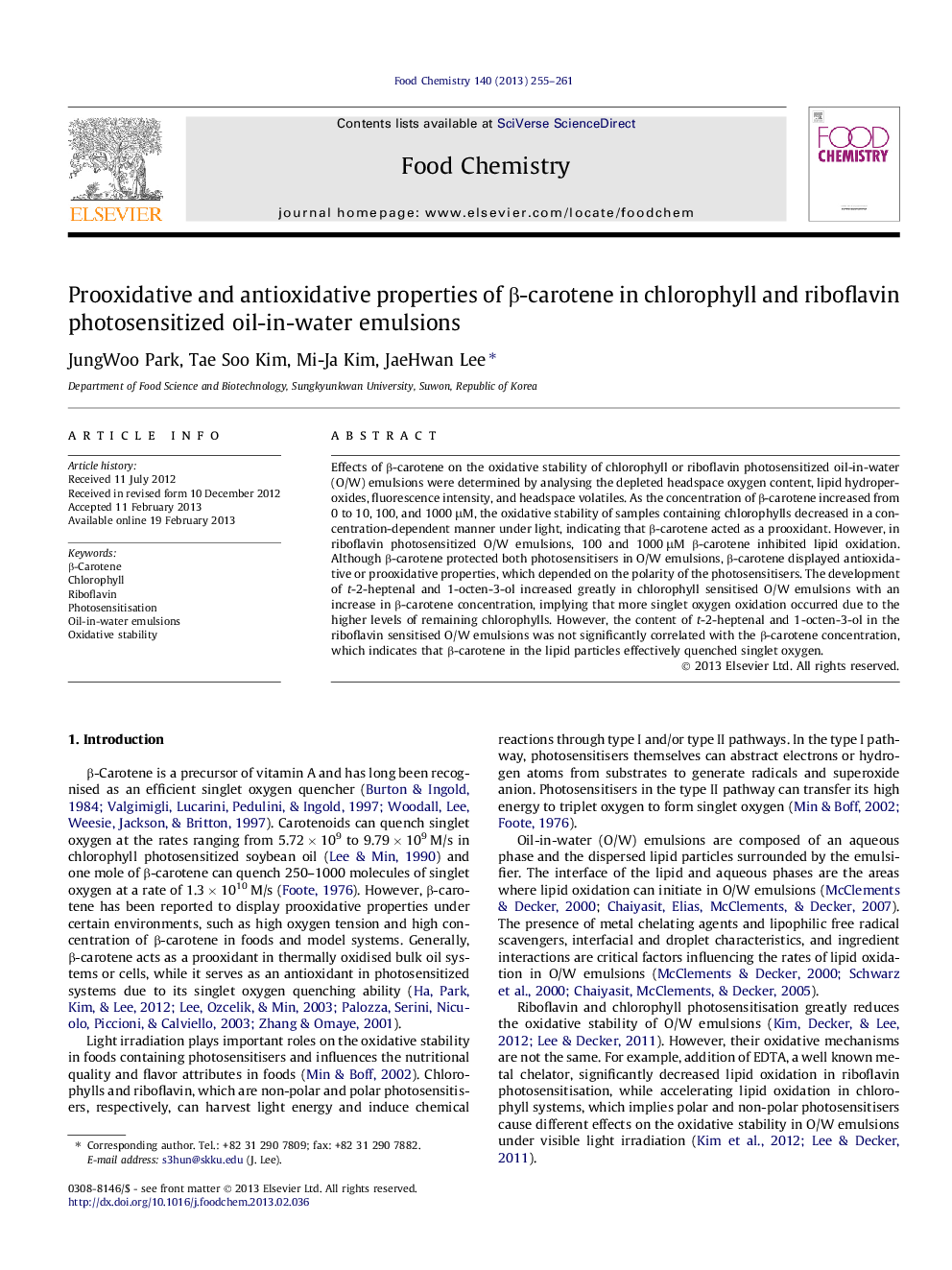| Article ID | Journal | Published Year | Pages | File Type |
|---|---|---|---|---|
| 1184904 | Food Chemistry | 2013 | 7 Pages |
Effects of β-carotene on the oxidative stability of chlorophyll or riboflavin photosensitized oil-in-water (O/W) emulsions were determined by analysing the depleted headspace oxygen content, lipid hydroperoxides, fluorescence intensity, and headspace volatiles. As the concentration of β-carotene increased from 0 to 10, 100, and 1000 μM, the oxidative stability of samples containing chlorophylls decreased in a concentration-dependent manner under light, indicating that β-carotene acted as a prooxidant. However, in riboflavin photosensitized O/W emulsions, 100 and 1000 μM β-carotene inhibited lipid oxidation. Although β-carotene protected both photosensitisers in O/W emulsions, β-carotene displayed antioxidative or prooxidative properties, which depended on the polarity of the photosensitisers. The development of t-2-heptenal and 1-octen-3-ol increased greatly in chlorophyll sensitised O/W emulsions with an increase in β-carotene concentration, implying that more singlet oxygen oxidation occurred due to the higher levels of remaining chlorophylls. However, the content of t-2-heptenal and 1-octen-3-ol in the riboflavin sensitised O/W emulsions was not significantly correlated with the β-carotene concentration, which indicates that β-carotene in the lipid particles effectively quenched singlet oxygen.
► β-Carotene acted as a prooxidant in chlorophyll sensitised O/W emulsions. ► In riboflavin sensitised O/W emulsions, β-carotene inhibited lipid oxidation. ► Polarity of photosensitiser influenced properties of β-carotene in O/W emulsions. ► β-Carotene quenched singlet oxygen more effectively in O/W emulsion with riboflavin.
